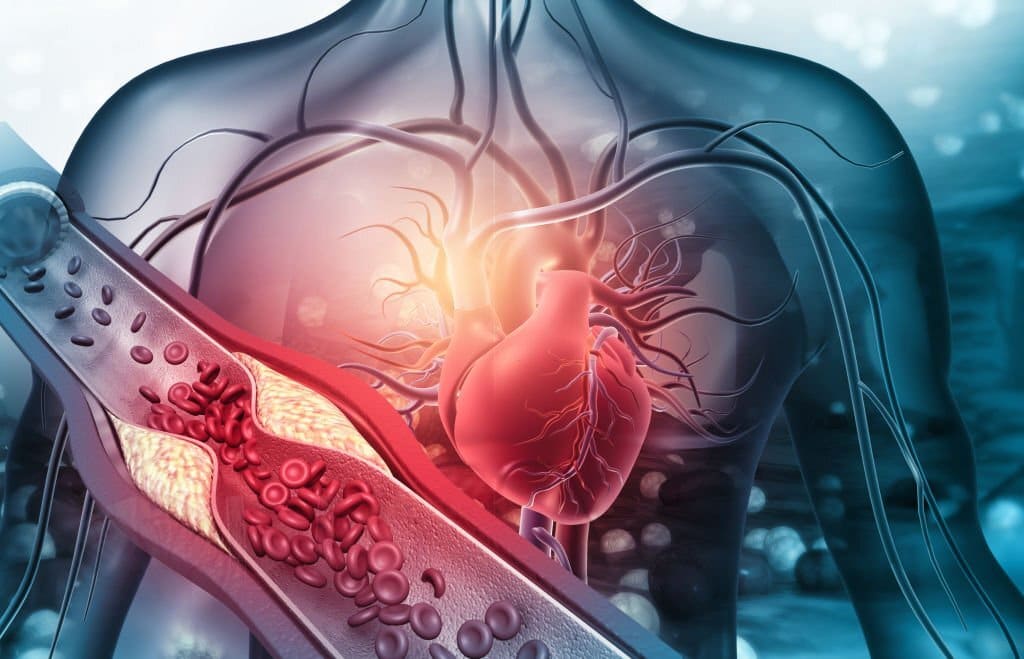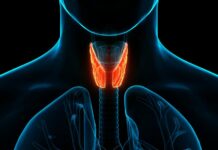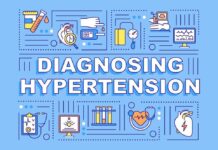High cholesterol is an epidemic. Tens of millions of Americans are currently taking cholesterol-lowering statin drugs in an attempt to prevent heart disease or suffering a stroke.
We’ve been taught that cholesterol is evil, but there is more you should know about naturally lowering cholesterol if you want to keep your heart and arteries healthy.
Cholesterol is NOT Evil
Cholesterol is not evil. In fact, it’s necessary. There is literally no life form on Earth that can live without it.
Not only is cholesterol found in your bloodstream (and it should be), but it’s in every cell of your body, where it helps to:
- Produce Vitamin D
- Produce cell membranes.
- Form memories.
- Drive neurological functions.
- Produce bile acids for the digestion of fats.
- Produce hormones like estrogen, testosterone, and cortisone.
You don’t retain all the cells you’re born with your entire life. They are constantly dying and being replaced by new ones, and cholesterol is needed every time a cell is repaired or replaced.
Cholesterol is a necessary component of the healing process and life itself.
Should We Remove Cholesterol From Our Diet?
There is no such thing as “bad” cholesterol.
Many people are under the false impression that lowering cholesterol naturally is accomplished by eliminating foods that contain cholesterol, but science has shown this to be largely ineffective.
That’s because the majority of cholesterol in the body does not come from food. The liver creates about 75-80% of the cholesterol in the blood.
The LDLs (low-density lipoproteins) that have been demonized as the cause of arterial plaques are just as important as the HDLs (high-density lipoproteins), which we’ve been told need to remain high. Both types serve an important function.
LDLs are proteins that carry cholesterol from the liver to the body, where it serves to repair cells, create healthy hormones, and help digest fats (among other functions).
After cholesterol has served its purpose, HDLs carry it back to the liver, where it’s recycled for later use. Without this process, we simply could not live.
So, why does a person develop high cholesterol?
Because there is an increased need for it! As long as there is an increased need for it, cholesterol counts will remain elevated.
This is not a malfunction.
The reasons LDLs have become vilified is because
- LDL particles can vary in size, so the small ones can slip through arterial walls and cause inflammation, and;
- LDL particles are also very sticky, so the small dense ones can stick to arterial walls and form plaques.
LDLs are not “bad.” They’re only harmful if the particles are too small, and the only way to ensure LDLs are the right size is through diet.
If the diet is healthy, LDLs carry cholesterol to the body where it serves its purpose, HDLs carry it back to the liver, and there is no plaque build-up.
Why Lowering Cholesterol With Drugs Can Be Dangerous
Discontinuing or altering prescribed medication should only be done with the guidance of licensed health care professional.
Cholesterol drugs inhibit the action of an enzyme called HMG Coenzyme A Reductase, which is required by the liver to manufacture cholesterol.
Doing this throws the entire body out of balance because not only do our cells need cholesterol but interfering with HMG Coenzyme A Reductase also inhibits the production of other substances the body needs.
One of these is Coenzyme Q10, a powerful antioxidant necessary for proper heart function. Lacking CoQ10 leads to fatigue, muscle weakness, soreness, DNA damage, and eventually heart failure.
In over 900 scientific studies, cholesterol-lowering statin drugs have been linked to:
- Nerve damage
- Increased cancer risk
- Drug-induced diabetes
- Immune suppression
- Depression
- Liver problems
- Kidney injury
- Muscle problems
- Dizziness
- Anemia
- Memory loss
- Sexual dysfunction
- Insulin resistance
- Cognitive impairment
And several studies even showed some to INCREASE ARTERIAL PLAQUE GROWTH!!!
Cholesterol-Lowering Statin Drugs Are Big Business
Before 2004, an LDL count of 130 was considered healthy. That year, however, a committee comprised of 9 physicians was convened to review and update cholesterol guidelines.
The outcome of that meeting was that target LDL counts should be lowered to 100 and even go as low as 70 for patients who are at high risk of developing heart disease.
There are two points that are important to make here.
- The only way to lower LDL levels to that range is with medication.
- 8 of the 9 doctors on the panel were making money from companies manufacturing cholesterol drugs.
Aside from that, there is ample evidence showing that low cholesterol counts are just as dangerous as those that are high.
There is a direct connection between low cholesterol and cancer, memory loss, hormonal imbalances, depression, stroke, Parkinson's disease, suicidal thoughts, and violent behavior.
The Real Cause of Elevated Cholesterol
The grocery store is loaded with low-cholesterol foods marketed as one method of controlling cholesterol levels. Unfortunately, most of them are processed junk with no nutritional value whatsoever.
There is no scientific evidence supporting the idea that cereal can lower cholesterol. In fact, many cholesterol-free foods have been shown to increase the amounts of cholesterol produced by the liver because of the damage they cause (from sugar and chemicals) to blood vessels.
The real cause of elevated cholesterol is the inflammation that results from doing things that break the body down.
The more inflammation and damage are present, and the more cholesterol is needed. It’s part of the healing process.
When inflammation becomes chronic, not only will cholesterol levels remain elevated, but so will other markers that are used to predict the probability of heart disease.
Natural Ways to Lower Cholesterol Without Statin Drugs
The following is a list of things that cause inflammation in the body and trigger elevated cholesterol.
- Sugar
- Dairy
- Smoking
- Trans-fats
- Processed foods
- Food Chemicals
- Sedentary lifestyle
- Emotional stress
- Grains (pasta, bread, cereal)
Here is how you lower cholesterol naturally and protect your heart and arteries from disease. The key is to keep inflammation and cell damage to a minimum:
1. Eat healthy fats
Healthy fat is imperative to optimal cellular function.
Healthy fats include foods like coconut and coconut oil, olives and olive oil, raw avocados, pastured eggs, fatty fish, seeds, raw nuts, and organic grass-fed meats.
These fats keep LDLs large and harmless. Dietary sugar makes them small and dangerous and correlates with heart disease.
2. Keep insulin levels low
We do this by eating whole-natural foods (raw fruits and vegetables) and limiting sugar and grains. High insulin makes cells in arterial walls divide too rapidly and can lead to plaques.
3. Omega-3 fats
Most humans lack omega-3s. An Omega-3 deficiency has been linked to elevated cholesterol in dozens of studies. See our choice for Omega-3s.
4. Vitamin D
Vitamin D helps regulate the immune response and inflammation. Most humans are severely deficient. See our choice for Vitamin D.
5. Exercise
We shouldn’t have to say much about this. We all know it’s necessary. Choosing not to exercise is choosing to die early. There is no debate about it.
6. Garlic
I am continually amazed at the benefits of garlic. It adds wonderful support to your immune system and is a powerful natural antibiotic. You can consume it raw (uncooked) or in supplement form.
*Supplementing with CoQ10 is imperative for those taking cholesterol-lowering drugs since the medications stop the body from making CoQ10. We recommend Raw CoQ10 from Garden of Life.
A Word About Your Cholesterol Count
Total cholesterol is the number everyone focuses on, but this number is a very poor indicator of heart disease risk unless it’s over 300.
A better guideline is to divide your HDL by your total cholesterol.
The percentage should be above 24%. If it’s below 10%, you have a significant risk of developing heart disease.
Then divide your triglyceride count by the HDL ratio (the number you just calculated), and it should be below 2.
- If your triglycerides are low and HDL is high, then the LDLs are of a good variety.
- If your triglycerides are high and HDL is low, then LDLs are of the bad variety, and you must put lifestyle changes into practice.
The above recommendations don’t only apply to naturally lowering cholesterol. They’re important in nearly every degenerative disease in existence.
The key to longevity is to implement these changes to increase your health, not to treat the symptoms of the disease.






